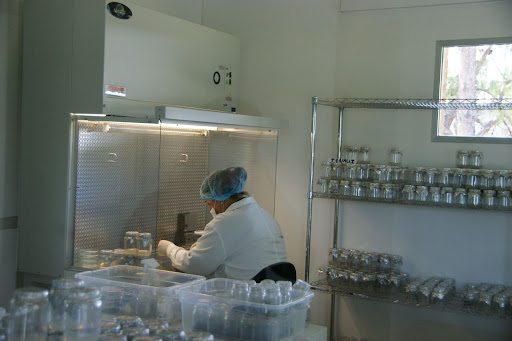Plant tissue culturing techniques have become especially important in the agricultural community over the past 10 years. During this time period, plant tissue culture has effectively moved from the confines of small laboratories and
has taken its place among some of the more mainstream, broad-scale techniques employed by the agriculture industry.
Plant tissue culture, more technically known as micropropagation, can be broadly defined as a collection of methods used to grow large numbers of plant cells, in vitro, in an aseptic and closely controlled environment. This technique is effective because almost all plant cells are totipotent—each cell possesses the genetic information and cellular machinery necessary to generate an entire organism. Micropropagation, therefore, can be used to produce a large number of plants that are genetically identical to a parent plant, as well as to one another.

The standard protocol for performing plant tissue culture experiments is fairly basic. First, it is essential that a sterile environment be created. The medium used to grow the plant tissue, the plant tissues themselves, and the environment surrounding the tissue culture, must be free of all possible contaminants. The presence of any bacterial, fungal, algal, or viral contaminants could potentially rob the desired plants of the nutrients provided by the culture medium and have devastating effects upon their growth. Once a sterile environment has been established, tissue can be collected from the plant’s leaf, shoot, bud, stem, or root (see Figure 1). Because each of these cells is totipotent, each has the potential to express an entire organism. The tissue sample can then be placed on an aseptic (free of microorganisms), nutrient-rich medium where its cells will begin to grow and develop into the desired plant product. The nature of the medium and the nutrients that it contains is dependent upon the type of plant being grown and the properties that the grower wishes to express. Finally, the developing tissue should be maintained in a closely controlled chemical and physical environment, such as a greenhouse, to achieve the best results.
The benefits of plant tissue culture are extensive in the agricultural world. Micropropagation is more favorable than traditional crop breeding methods in many respects, the first being that it allows for the production of huge numbers of plants in a very short period of time. Plant tissue culture is also advantageous to growers because an overwhelming number of plants can be produced using the tissue collected from a single parent plant—a plant that itself remains unharmed in the tissue harvesting process. Crop production through micropropagation also eliminates the possibility of any interruption in the growing season because it can be carried out inside the carefully regulated environment of a greenhouse. Because the chemical and physical environment inside a greenhouse can be closely monitored, any lull in production that might typically occur as a result of seasonal change can be avoided.
Micropropagation will be crucial to the agriculture industry in the future because it is used to produce plants that have been genetically modified and selected for their ability to resist certain indigenous environmental stresses. Currently, scientists and members of the agricultural community have joined forces to investigate the possibility of creating lines of tomatoes that possess increased salt tolerance (to be grown in areas in which the soil is high in salinity), plants that are completely resistant to various viral, bacterial, algal, and fungal infections, tobacco plants whose leaves can withstand freezing temperatures, and crops that are entirely resistant to harmful and destructive insects.


